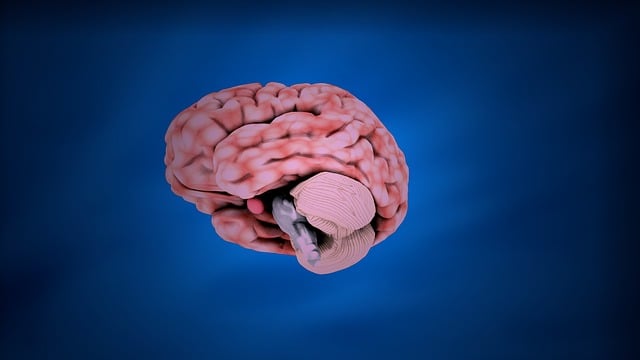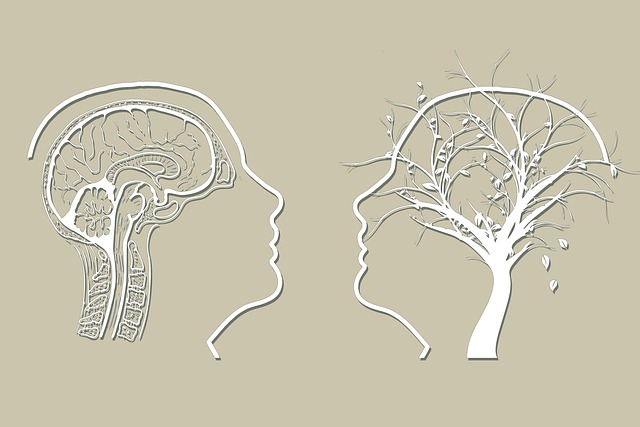Centennial Adolescent and Teen Therapy addresses rising mental health concerns among teens with tailored solutions, focusing on symptom management, resilience building, and coping strategy development. Their evidence-based approach incorporates cognitive-behavioral therapy (CBT), mindfulness, and solution-focused brief therapy. The curriculum prioritizes age-specific challenges like peer pressure and identity formation while emphasizing cultural sensitivity and effective communication. Through strategic planning, group sessions, digital platforms, and continuous evaluation, they equip teens with lifelong coping strategies for improved mental wellness.
“In today’s fast-paced world, adolescent mental health is a pressing concern. This article explores the development of effective Centennial Adolescent and Teen Therapy programs through a multi-faceted approach. We delve into the growing need for support in this age group, emphasizing the importance of tailored therapy. By examining evidence-based practices and designing comprehensive curricula, coaches can create sustainable wellness strategies. Through case studies, we’ll uncover how these programs are revolutionizing mental health care for teens, offering hope and resilience.”
- Understanding the Need for Adolescent Mental Health Support
- Designing Age-Specific Therapy Programs
- Incorporating Evidence-Based Practices in Coaching
- Creating a Comprehensive Curriculum for Wellness Coaches
- Implementing and Evaluating the Effectiveness of Centennial Adolescent and Teen Therapy Programs
Understanding the Need for Adolescent Mental Health Support

Adolescent mental health is a critical aspect that often demands tailored and comprehensive support. Today’s fast-paced world presents unique challenges for young individuals, contributing to rising rates of anxiety, depression, and other mental health concerns among adolescents. The need for specialized therapy and coaching programs is evident, especially as these issues can have long-lasting impacts on their overall well-being and future prospects.
Centennial Adolescent and Teen Therapy recognizes this pressing need and offers innovative solutions. Their approach involves not only addressing the symptoms but also empowering teenagers to develop resilience and coping strategies. Through carefully designed Mental Health Education Programs, they teach valuable skills such as mindfulness meditation, which has been proven to reduce stress and improve focus. Additionally, building confidence is a key component of these programs, enabling young people to navigate life’s challenges with enhanced self-esteem and a sense of purpose.
Designing Age-Specific Therapy Programs

In designing therapy programs for adolescents and teens, it’s crucial to consider age-specific needs and developmental stages. The Centennial Adolescent and Teen Therapy approach must cater to the unique challenges faced by this demographic, such as peer pressure, academic stress, and identity formation. Incorporating techniques that foster Resilience Building and Emotional Well-being Promotion is essential. These programs should not only address immediate issues but also equip young individuals with lifelong coping strategies.
Cultural sensitivity in mental healthcare practice is another critical aspect. Recognizing and respecting diverse cultural backgrounds ensures that therapy resonates with each teen’s unique experiences and perspectives. Tailoring interventions to align with familial and community values can significantly enhance the effectiveness of Centennial Adolescent and Teen Therapy, fostering a sense of belonging and support that is integral to their mental wellness journey.
Incorporating Evidence-Based Practices in Coaching

Incorporating evidence-based practices is a cornerstone for developing effective mental wellness coaching programs. At Centennial Adolescent and Teen Therapy, we recognize that coaching should be rooted in scientific research to ensure it provides tangible benefits. Techniques such as cognitive-behavioral therapy (CBT), mindfulness practices, and solution-focused brief therapy have been proven to significantly improve emotional well-being promotion techniques for young individuals. By integrating these evidence-based strategies into coaching sessions, we empower adolescents to develop coping mechanisms that are both sustainable and tailored to their unique needs.
Empathy building strategies play a pivotal role in this process. Coaches who demonstrate genuine understanding and compassion create a safe space where teens can openly discuss their challenges without fear of judgment. This supportive environment facilitates honest communication, allowing coaches to guide their clients towards identifying and implementing stress management workshops organization techniques that are aligned with their personal goals. Ultimately, these practices contribute to fostering resilience, enhancing overall mental wellness, and equipping young people with the tools necessary to navigate life’s complexities.
Creating a Comprehensive Curriculum for Wellness Coaches

Developing a curriculum for mental wellness coaches is an intricate process that requires careful consideration to address the diverse needs of clients, especially adolescents and teens. At Centennial Adolescent and Teen Therapy, we understand that crafting a comprehensive program involves more than just teaching coping strategies; it’s about equipping coaches with the tools to navigate complex teen psychology. The curriculum should incorporate various modules focusing on effective communication, active listening skills, and evidence-based practices for managing mental health issues.
One essential component is integrating conflict resolution techniques, as these are vital for building rapport and supporting clients in resolving interpersonal challenges. Additionally, healthcare provider cultural competency training is crucial to ensure coaches can sensitively address the unique needs of a diverse client base. Moreover, risk management planning for mental health professionals should be a cornerstone of the curriculum, providing strategies to mitigate potential risks and ensuring the safety of both coach and client during therapeutic sessions.
Implementing and Evaluating the Effectiveness of Centennial Adolescent and Teen Therapy Programs

Implementing Centennial Adolescent and Teen Therapy programs requires a strategic approach to ensure their effectiveness. These therapeutic interventions are designed to address the unique challenges faced by young individuals, fostering mental wellness and personal growth. The first step involves tailored planning, considering age-appropriate methods and activities that engage adolescents and teens actively in their therapy. This may include group sessions, individual counseling, or even digital platforms for remote support, all aimed at creating a safe and supportive environment.
Evaluating the success of these programs is crucial. By incorporating metrics to measure improvements in areas like emotional regulation, self-care routine development for better mental health, and confidence boosting, therapists can assess progress. Compassion Cultivation Practices (CCPs), for instance, have shown promise in improving adolescents’ ability to manage stress and navigate interpersonal relationships. Regular feedback from participants and therapists alike plays a vital role in refining these Centennial Adolescent and Teen Therapy programs, ensuring they remain relevant and impactful.
The development of mental wellness coaching programs, particularly tailored for adolescents and teens, is a vital step in addressing the growing need for accessible mental health support. By incorporating evidence-based practices and age-specific strategies, such as those explored in the context of Centennial Adolescent and Teen Therapy programs, coaches can create comprehensive curriculums that foster resilience and well-being. Effective coaching not only enhances individual mental wellness but also contributes to a broader, more supportive community for young people. As these programs gain traction, ongoing evaluation ensures their success and adaptability to meet the evolving needs of adolescents in today’s world.












